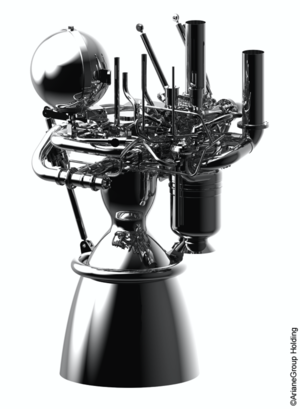ESA Graduate Trainee Programme vs Junior Professional Programme: What’s the difference?
Are you an early-career professional looking to launch your career in the space industry? With applications for the ESA Graduate Trainee Programme (EGT) having just closed and the call for applications for the Junior Professional Programme (JPP) coming in the beginning of May, we wanted to bring you up to speed on the differences between the two programmes. While both programmes provide valuable experience within ESA, they are designed for candidates at different stages of their careers. If you’re considering applying for the Junior Professional Programme, this article will help clarify the key differences between these two initiatives.
Applications for the Junior Professional Programme will open in a few weeks. Be the first to be notified about the publication of the Junior Professional vacancies by creating a job alert on our recruiting website and/or subscribe to our careers news!
ESA’s Graduate Trainee Programme (EGT) – an entry point for graduates
The ESA Graduate Trainee Programme is tailored for recent graduates who are looking to gain hands-on experience in a space-related domain. It is an excellent stepping stone for those who have just completed their studies and are eager to apply their knowledge in a real-world setting.
Junior Professional Programme (JPP) – a launchpad for early-career professionals
The Junior Professional Programme is designed for individuals who have already gained some professional experience and are looking for a structured career development opportunity within ESA. It is a more advanced programme aimed at nurturing talent for long-term roles in the agency.
Key features of the EGT and JP Programmes:
| EGT Programme | JP Programme | |
| Eligibility |
- Education & experience: Open to candidates who have recently completed a Master’s degree in a relevant field (such as engineering, science or business) with a maximum of one year of relevant professional experience. - Eligible nationalities: Applicants must have citizenship of one of the ESA Member States, Associate Members or Canada as a Cooperating State. In addition, nationals of European Cooperating States can apply to the programme (the full list of eligible countries is stated in each ESA vacancy). |
- Education & experience: Open to candidates with a Master’s degree and two to three years of professional experience in a relevant field. - Eligible nationalities: Applicants must have citizenship of one of the ESA Member States, Associate Members or Canada as a Cooperating State (the full list of eligible countries is stated in each ESA vacancy). |
| Duration | One-year contract, with the possibility of extension for a second year. | Four-year contract with the perspective of a long-term career at ESA. |
| Scope | Graduate Trainees work on specific projects under the guidance of ESA experts, allowing them to develop technical, scientific or business skills. | The JP Programme offers mentorship, tailored training and career development opportunities, such as external secondments and internal rotations. |
| Objective | To provide graduates with practical experience and insights into the space industry, helping them determine their career path. | To develop the next generation of ESA professionals by providing the foundation for a long-term career path within the agency. |
| Application cycle | Over 100 opportunities are published every year in February. | 15 JP positions published every year in April or May. |
| Can I apply to more than one position? | Applicants can apply to maximum three positions. | Applicants can apply to more than one position, however due to the smaller number of positions available, we highly recommend you apply to the position(s) most relevant to your background. |
Which programme is right for you?
If you are a recent graduate with little or no work experience, the ESA Graduate Trainee Programme is your best entry point into ESA. It allows you to gain industry experience and develop skills that can lead to future opportunities within the space sector.
On the other hand, if you have already gained some relevant professional experience and are looking for a long-term career within ESA, the Junior Professional Programme is the ideal next step. The JPP offers a more structured career pathway, with greater responsibilities and the potential to transition into a permanent role.
ESA does also offer other opportunities such as student internships, research fellowships and co-funded research. To see which programme is the best fit for you, have a look at this page.
How to apply
For all ESA positions, the application must be submitted through ESA’s official careers portal. Given the competitive nature of these opportunities, it is crucial that your CV and cover letter highlight your relevant skills, experience and motivation for joining ESA.
- Explore our ESA opportunities here.
- Create your candidate profile and upload your CV and motivation letter.
- Apply! You will be able to track the status of your application throughout the process by logging into your candidate profile.
Kick-start your career
ESA’s Graduate Trainee Programme and Junior Professional Programme are both unique opportunities for early-career professionals to establish themselves in the space industry. Understanding the differences between them can help you determine the right fit for your skills and career aspirations. Whether you are just starting out or looking for the next step in your professional journey, ESA offers a pathway to exciting and meaningful work in space exploration and innovation.
If you’re ready to take your career to the next level, start preparing your application today – your portal to space awaits!















 Germany
Germany
 Austria
Austria
 Belgium
Belgium
 Denmark
Denmark
 Spain
Spain
 Estonia
Estonia
 Finland
Finland
 France
France
 Greece
Greece
 Hungary
Hungary
 Ireland
Ireland
 Italy
Italy
 Luxembourg
Luxembourg
 Norway
Norway
 The Netherlands
The Netherlands
 Poland
Poland
 Portugal
Portugal
 Czechia
Czechia
 Romania
Romania
 United Kingdom
United Kingdom
 Slovenia
Slovenia
 Sweden
Sweden
 Switzerland
Switzerland































